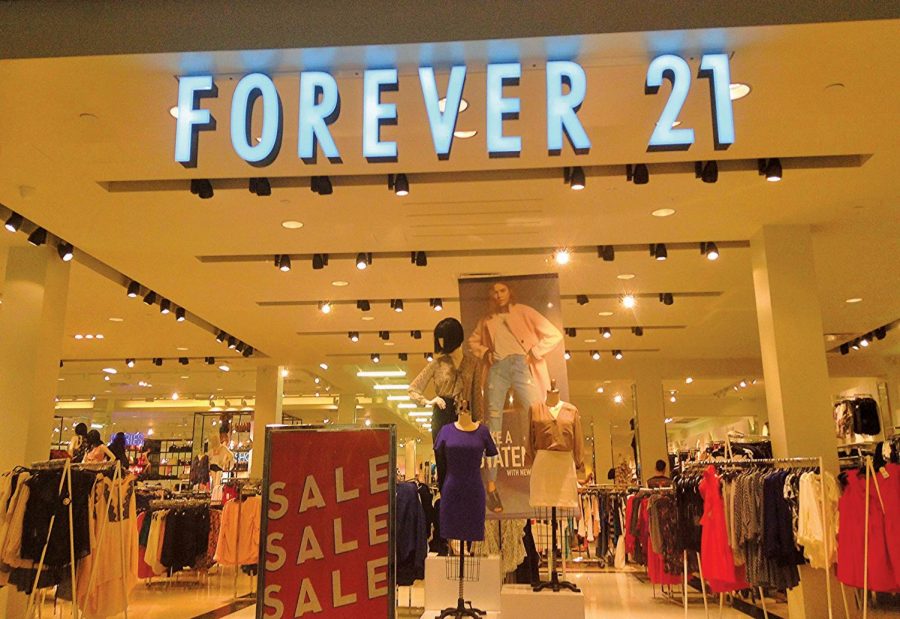Forever 21 disregards ethical concerns of conscious consumers
Forever 21 first opened on April 21, 1984, in Los Angeles, California. The store will have to close up to 178 locations in the U.S. according to the New York Times.
California-based retailer Forever 21 filed for bankruptcy on Sept. 29. The company was among the most popular fast fashion brands of the early 2000s. However, Forever 21 said it would close roughly 350 stores but will continue operating a few hundred stores in the U.S as well as an online retail website. In the company’s heyday, it was worth over $4 billion as it successfully marketed to young adults for cheap clothes that were still considered fashionable.
So what does this mean for fast fashion? In reality, not much. Fast fashion has become a staple of American consumerism and although people love to shame brands for having their clothes made in sweatshops in impoverished countries, the reality is that there is no other way to keep clothing prices low. However, what differentiates Forever 21 is the fact that the brand made no effort to change its image of fast fashion. Brands such as H&M and Zara have gone out of their way to show that they have strong ethical standards for how their clothes are made.
This is why Forever 21 failed; the company failed to keep up with the expectations of young people. In today’s world, young people care more about environmental standards than previous generations. Because of this, people looked down on Forever 21 for simply not acknowledging their responsibility as a company.
This problem was fully exposed when the Rana Plaza garment factory in Bangladesh collapsed, killing over 1,100 garment workers. The factory was making clothes for brands like Mango and Benetton Group. Although Forever 21 clothes were never made in the factory, the tragedy exposed the inhumane practices of fast fashion.
Forever 21 tried to show it maintained ethical practices when contracting sweatshops in other countries. However, there was no way for the company to prove that contractors did not evade labor laws in countries such as Bangladesh. Unlike many of the company’s competitors, Forever 21 never joined the Alliance for Bangladesh Worker Safety or the Bangladesh Accord on Fire and Building Safety, two groups that vowed to improve working standards in the country after the Rana Plaza disaster.
Another factor that contributed to the company’s decline is the dying business of malls in the U.S. Over the past few years, Forever 21 continued to expand, opening stores all over the U.S and Canada, and yet, it still failed to keep up with online competitors such as ASOS and Fashion Nova. The problem was that the company wanted to expand its brand beyond cheap clothes for women. The company started pairing down with men and women’s accessories, cheap home decor and cosmetics but did not seem to realize how quickly malls in America were declining over the past few years.
In conclusion, this doesn’t mean much for the fast fashion industry. I think Forever 21 will always be remembered as a big part of fashion in the early 2000s, but not in a fond way. People care about ethical practices more so now than ever before, and Forever 21 did not seem to pay much attention to those practices. Because of that, it has suffered the consequences.








